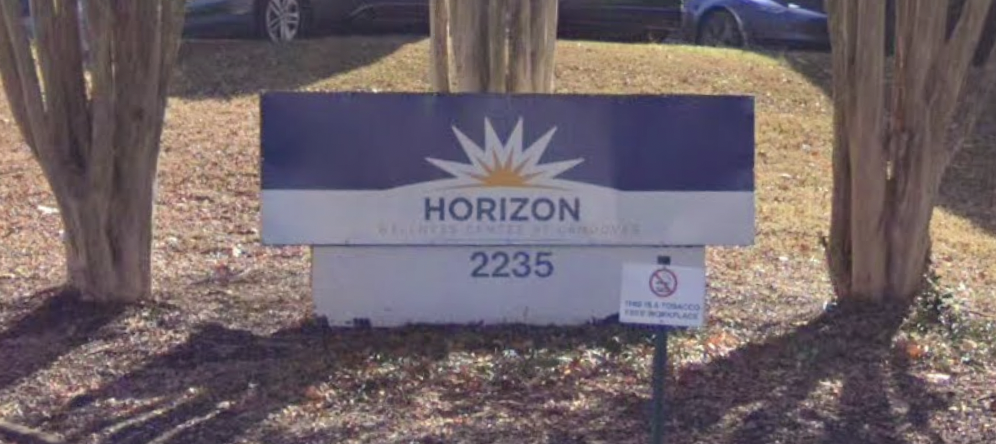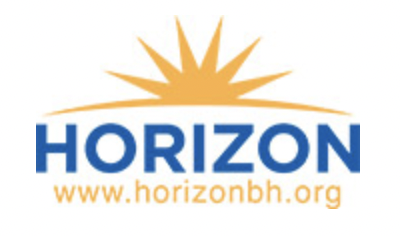Overview
Horizon Behavioral Health - Landover Wellness Center is a mental health treatment center for people seeking treatment near Lynchburg City County. As part of their treatment modalities for recovery, Horizon Behavioral Health - Landover Wellness Center provides couples/family therapy during treatment. Horizon Behavioral Health - Landover Wellness Center is located in Lynchburg, Virginia, accepting cash or self-payment for treatment.
Horizon Behavioral Health - Landover Wellness Center at a Glance
Payment Options
- Cash or self-payment
- Medicaid
- Medicare
- Private health insurance
- Federal military insurance (e.g., TRICARE)
Assessments
- Screening for tobacco use
- Comprehensive mental health assessment
- Comprehensive substance use assessment
Age Groups
- Young adults
- Children/adolescents
- Adults
- Seniors
Ancillary Services
- Intensive case management
- Case management service
- Court-ordered outpatient treatment
- Diet and exercise counseling
- Education services
Accreditations
Commission on Accreditation of Rehabilitation Facilities (CARF):

CARF accreditation is a prestigious recognition for organizations in rehabilitation and human services. It signifies that an organization meets rigorous quality standards and is committed to providing top-notch care. Achieving CARF accreditation involves a thorough evaluation process, including on-site surveys, to ensure excellence in programs and services. This accreditation boosts an organization's credibility, assures clients and funders of quality, and promotes ongoing improvement in the field of rehabilitation and human services.
Treatment At Horizon Behavioral Health - Landover Wellness Center

Conditions Treated
Alcoholism:
Alcohol addiction is a health problem where drinking takes control over a person's life. It affects how their brain thinks and acts, leading to strong desires to drink, bad feelings, sudden actions, and discomfort when not drinking. To help someone with this problem, there are treatments like detox, counseling, group support, and learning coping methods. While treatment can't completely cure the urge to drink, it helps people regain control of their lives and feel better overall.
Mental health treatment:
Mental health treatment involves various therapies and support services provided by licensed professionals to address mental health issues. These interventions, which can include therapy, medication, and holistic approaches, aim to enhance well-being, improve coping, and empower individuals to lead fulfilling lives. It's personalized, comprehensive care for mental health challenges.
Substance use treatment:
Substance use rehabilitation is a comprehensive treatment approach designed to assist individuals struggling with addiction to drugs or alcohol. This form of rehabilitation addresses both the physical dependency, often starting with detoxification, and the psychological triggers, using various therapeutic methods. The objective is to empower individuals to achieve and maintain sobriety, while equipping them with the tools and coping strategies needed to reintegrate into society and lead a substance-free life.
Co-occurring Disorders:
Dual-diagnosis rehabilitation centers usually offer the most suitable approach for addressing concurrent mental health and substance abuse conditions. Within these facilities, a team of medical and behavioral professionals is typically assembled, employing diverse interventions and cultivating an optimal therapeutic environment to enable you to attain and maintain lasting recovery. The treatment regimen often encompasses evidence-based therapies, such as cognitive behavioral therapy, complemented by recovery support gatherings, 12-step program facilitation, skills development, and group therapy.

Levels Of Care
Outpatient:
Outpatient treatment in a rehab center offers structured therapeutic services for individuals seeking recovery without full-time residential admission. Unlike intensive outpatient programs, which demand more frequent and longer sessions, standard outpatient care provides a more flexible approach, allowing participants to maintain daily activities and responsibilities while undergoing treatment.

Treatment Modalities
Couples/family therapy:
Couples Therapy during rehab is a specialized counseling program designed to support couples who are navigating the challenges of addiction recovery together. This form of therapy provides a safe and structured environment where couples can address the impact of substance abuse on their relationship and work towards healing and growth as a team. By addressing both individual and shared issues, couples in rehab can strengthen their bond and increase their chances of sustained recovery, fostering a healthier and happier future together.
Group counseling:
Group Counseling is a therapeutic approach where individuals come together under the guidance of a trained counselor to share experiences, provide mutual support, and gain insights. It fosters a sense of community, promotes understanding through diverse perspectives, and offers personal growth and problem-solving strategies.
Cognitive behavioral therapy:
Cognitive Behavioral Therapy (CBT) is a widely practiced form of psychotherapy that seeks to address dysfunctional emotions, behaviors, and thoughts through a goal-oriented, systematic process. It encourages individuals to challenge distorted cognitions and change destructive patterns of behavior by promoting self-awareness and effective coping strategies. CBT is often used to treat a range of disorders including anxiety, depression, and stress, making it a versatile and practical therapeutic approach. Through enhancing an individual's capacity to manage life's challenges, CBT contributes to improved mental well-being and overall quality of life.
Dialectical behavior therapy:
Dialectical Behavior Therapy (DBT) is an evolved version of Cognitive Behavioral Therapy (CBT) that aims to assist individuals in recognizing and influencing the interplay among their thoughts, emotions, and actions. DBT is particularly beneficial for those grappling with self-harming behaviors, including self-inflicted injuries like cutting, as well as suicidal ideations or tendencies. Clinically, it has shown effectiveness in managing intense emotions and conditions such as Borderline Personality Disorder.
Integrated Mental and Substance Use Disorder treatment:
Integrated Mental and Substance Use Disorder treatment is a comprehensive approach to treating individuals with both mental health and substance use disorders. It aims to address both conditions simultaneously through a coordinated and integrated approach. The goal is to improve overall well-being and reduce the risk of relapse.
Activity therapy:
Activity Therapy refers to a therapeutic approach utilized in rehab centers to promote physical, emotional, cognitive, and social healing. Through structured and guided activities, patients are encouraged to engage in tasks that stimulate the mind, enhance motor skills, foster interpersonal relationships, and bolster self-esteem. By participating in diverse activities, from arts and crafts to group games, patients not only distract from negative thoughts or behaviors but also develop coping mechanisms, resilience, and a sense of purpose. It's a holistic way of enhancing an individual's overall well-being while in the recovery process.
Telemedicine/telehealth therapy:
Telehealth Therapy allows individuals to access mental health services remotely via secure video conferencing. This level of care offers qualified therapy from the comfort of one's home, removing geographical barriers and often reducing wait times. Ideal for those with mobility challenges, tight schedules, or those in rural areas, it combines convenience with consistent, high-quality mental health support.
Smoking/vaping/tobacco cessation counseling:
Vaping Cessation Counseling is a supportive process aimed at assisting individuals who wish to quit vaping. Through personalized sessions, trained counselors help identify triggers, manage withdrawal symptoms, and develop coping strategies. This service empowers individuals to break free from vaping addiction and work towards achieving a healthier lifestyle.
Eye Movement Desensitization and Reprocessing therapy:
Eye Movement Desensitization and Reprocessing Therapy (EMDR) is a psychotherapeutic technique aimed at alleviating distress associated with traumatic memories. It involves a structured eight-phase approach, during which the client recalls distressing images while receiving bilateral sensory input, such as side-to-side eye movements. Through this process, EMDR aids in the reprocessing of traumatic memories, potentially rendering them less distressing and allowing for improved mental health and functioning.
Abnormal involuntary movement scale:
The AIMS is a 12-point evaluation instrument that clinicians employ to assess the severity of dyskinesias, notably in the face, limbs, and torso, for patients on neuroleptic medications. It gauges the overall effect, the level of impairment, and the patient's awareness and distress about these involuntary movements. Frequently used in research on antipsychotic drugs to detect tardive dyskinesia, the AIMS is prized for its clear format and swift assessment, making it suitable for routine clinical examinations by trained professionals.
Holistic Treatment:
Holistic treatment in a rehab center encompasses a comprehensive approach to recovery, addressing an individual's physical, emotional, mental, and spiritual needs. Rather than focusing solely on the symptoms of addiction, this method seeks to treat the underlying causes and imbalances that contribute to substance abuse. Incorporating a variety of therapies, such as meditation, yoga, acupuncture, and nutritional counseling, holistic treatment aims to heal the whole person, ensuring a well-rounded and sustainable recovery journey.
Ancillary Services
Languages
- Sign language services for the deaf and hard of hearing
Special Programs
- Active duty military
- Members of military families
- Clients who have experienced trauma
- Children/adolescents with serious emotional disturbance (SED)
- Persons 18 and older with serious mental illness (SMI)
Contact Information
DISCLAIMER: The facility name, logo and brand are the property and registered trademarks of Horizon Behavioral Health - Landover Wellness Center, and are being used for identification and informational purposes only. Use of these names, logos and brands shall not imply endorsement. BetterAddictionCare.com is not affiliated with or sponsored by Horizon Behavioral Health - Landover Wellness Center.



